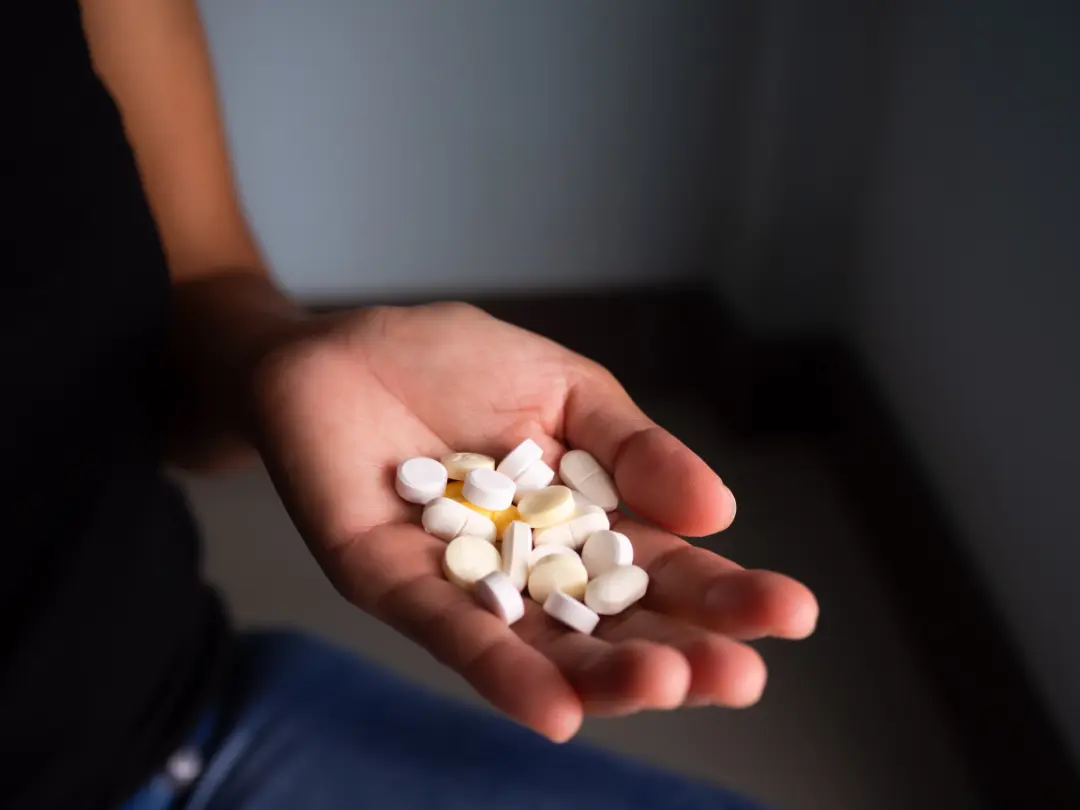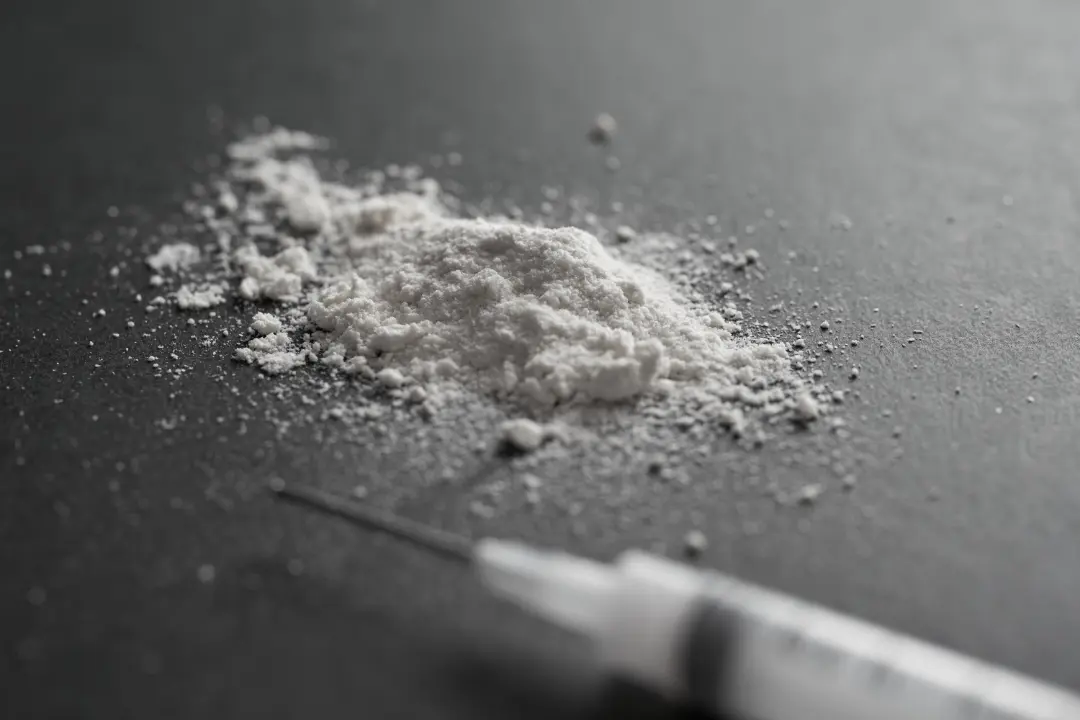Signs, Relief, and Treatment Options
Opiate withdrawal symptoms can be tough to handle when you stop or cut down on opiates. Generally, symptoms like anxiety, muscle aches, and nausea can appear.
This article will detail these symptoms, their severity, and how to manage them effectively.
Key Takeaways
- Opiate withdrawal symptoms encompass a range of physical and psychological challenges, with significant variations in severity depending on factors like dosage and duration of dependence.
- The three-phase timeline of opiate withdrawal—Initial, Peak, and Late—guides management strategies, while recognizing symptoms that emerge at each stage is critical for effective recovery.
- Effective treatment for opiate withdrawal combines pharmacological options like Medication-Assisted Treatment with holistic therapies and long-term support, emphasizing the importance of community and family involvement in the recovery process.
What Are Opiate Withdrawal Symptoms?
Opiate withdrawal symptoms are a complex mix of physical and psychological challenges that arise when an individual stops or reduces the use of opiates 1. These symptoms can be severe and are often a significant barrier to overcoming chronic opioid addiction for opioid-dependent patients.
Nearly half of patients on long-term opioid therapy experience moderate to severe withdrawal symptoms. This highlights the widespread impact of opioid dependence and drug abuse. It also underscores the risk of opioid withdrawal syndrome.
Withdrawal symptoms 2 range from anxiety and muscle aches to more severe issues like nausea and diarrhea, which can have adverse effects. Understanding these increasing withdrawal symptoms is key to managing them effectively and seeking appropriate treatment.

Physical Symptoms
Physical symptoms of opiate withdrawal can be incredibly uncomfortable and disruptive. Initial symptoms often include:
- Anxiety
- Agitation
- Muscle aches
These can emerge shortly after the last opioid dose. As the opioid withdrawal progresses, individuals may experience opioid withdrawal symptoms such as:
- sweating
- vomiting
- fever
- flu-like symptoms.
The severity of these symptoms can vary, but they often represent a significant challenge for those attempting to quit opioid analgesics and may be indicative of opioid use disorder.
Recognizing and managing these symptoms is essential for a successful recovery journey.
Psychological Symptoms
Psychological symptoms 3 during opiate withdrawal are equally challenging, affecting overall mental health and well-being. Anxiety is a common initial symptom, leading to feelings of unease and restlessness. As withdrawal progresses, depression can set in, contributing to a sense of hopelessness and sadness.
Irritability and intense drug craving are also frequent, making it difficult to manage emotions and maintain motivation.
Addressing these psychological symptoms of substance abuse withdrawal is fundamental to a comprehensive recovery approach. Disorders must be treated with care to ensure lasting recovery.
Regain Control With Expert Opiate Detox Care at Charles River Recovery
Opiate withdrawal can feel overwhelming, but you don’t have to face it alone. At Charles River Recovery, we offer medically supervised opiate detox programs that ensure a safe, supportive, and clinically guided start to your recovery journey.
Our licensed medical professionals provide round-the-clock care to manage symptoms such as anxiety, nausea, muscle aches, and intense cravings, all while prioritizing your comfort and dignity.
Every client receives a personalized detox plan based on a thorough assessment of their health history, opioid use patterns, and unique physical and psychological needs.
Whether you’re experiencing early symptoms or already in the peak withdrawal phase, our clinical stabilization services help you transition smoothly through detox and into long-term care. We offer a safe haven where healing begins.
Don’t let fear of withdrawal delay your recovery. Call 844-666-2375 today to take the first step. We are here to walk with you through every phase of detox and recovery.
What Are the Causes of Opiate Withdrawal?
Opiate withdrawal happens when someone who is dependent on prescription opioids suddenly cuts back or stops using them. This can lead to various withdrawal symptoms. This process is linked to the superactivation of adenylyl cyclase 4 in the central nervous system. Research has shown that the locus coeruleus 5 of the brain plays a primary role in initiating withdrawal symptoms related to opioid receptors.
However, several factors can influence the severity of withdrawal symptoms, including the size of the opioid dose, the duration of dependence, and individual factors such as age and overall health.
All of these are taken into consideration when developing effective treatment strategies for opioid addiction.
The Timeline of Opiate Withdrawal
The timeline of opiate withdrawal outlines the progression of symptoms from initial onset to resolution. Knowing this timeline assists individuals and healthcare providers in managing withdrawal more effectively.
Generally, the process can be divided into three phases: the Initial Phase, the Peak Phase, and the Late Phase.

Initial Phase (6-12 hours)
Opiate withdrawal symptoms begin to emerge within the first 6 to 12 hours after the last dose. Early symptoms include:
- Sweating
- Vomiting
- Fever
- Agitation
- Anxiety (resembling flu-like symptoms)
Identifying these early symptoms allows for timely intervention and management.
Peak Phase (48-72 hours)
During the peak phase, occurring 48-72 hours after the last dose, withdrawal symptoms reach their most severe. Individuals may experience intense gastrointestinal issues, such as vomiting and diarrhea, along with severe cravings.
This phase is often the most challenging, requiring comprehensive care and support.
Late Phase (5-7 days)
In the late phase of withdrawal, typically occurring within 5-7 days after cessation, symptoms may begin to subside but can still include persistent fatigue, mood fluctuations, and difficulty sleeping.
Recognizing these lingering symptoms is vital for effective recovery and ongoing support.
Diagnosing Opiate Withdrawal
Accurately diagnosing opiate withdrawal guides appropriate treatment and ensures patient safety. The Clinical Opiate Withdrawal Scale (COWS) 6 is commonly used to measure the intensity of withdrawal symptoms. This scale evaluates symptoms such as:
- pulse rate
- sweating
- restlessness
- pupil size
- gastrointestinal distress.
Healthcare professionals analyze both subjective reports and physical signs while assessing clinical information.
At Charles River Recovery, our intake coordinators perform comprehensive assessments to align treatment options with individual needs, including a systematic review of available data.
Treatment Options for Opiate Withdrawal
Effective treatment for opiate withdrawal involves a combination of pharmacological and non-pharmacological therapies. Medications such as buprenorphine 7 are effective in lessening withdrawal symptoms and cravings.
In addition to the treatment, ongoing support and aftercare are vital for maintaining sobriety and preventing relapse in individuals recovering from opiate addiction.

Medically Supervised Detox
Medically supervised detox programs provide a safe and supportive environment for individuals facing opiate withdrawal. FDA-approved medications like methadone 2 and buprenorphine are used to alleviate symptoms, contributing to a more manageable, medically supervised opioid withdrawal process.
Charles River Recovery provides inpatient detox treatment for opioid and clinical stabilization with 24/7 medical supervision to ensure patient safety during withdrawal.
Medication-Assisted Treatment (MAT)
Medication-Assisted Treatment (MAT) employs medications such as methadone, buprenorphine/naloxone to manage withdrawal and cravings effectively. Buprenorphine, in particular, is effective in alleviating symptoms and reducing cravings, making it a vital component of addiction med strategies.
MAT plays a dual role in managing withdrawal symptoms and supporting sustained recovery efforts.
Holistic Therapies
Research has shown that holistic therapies like acupuncture 8 and yoga 9 can complement traditional treatments by promoting relaxation and reducing anxiety. Nutritional support also plays a key role in recovery by helping to restore physical health during opiate withdrawal.
These complementary treatments can enhance the overall well-being of individuals in recovery.
Importance of Long-Term Support and Recovery
Long-term support is vital for lasting recovery from opiate withdrawal. Joining alumni and peer support groups enhances relapse prevention through shared experiences and coping strategies, making long-term treatment with longer-acting opioids more effective.
Family support also significantly improves the chances of successful recovery by providing a strong support system.
Alumni Programs
At Charles River Recovery, we promote long-term support through our alumni program. This program includes ongoing community support, weekly groups, and relapse prevention initiatives.
These educational and aftercare planning tools are provided to help individuals manage triggers and maintain long-term sobriety.
Peer Support Groups
Peer-led support groups offer shared experiences and accountability, which significantly aid individuals in maintaining their sobriety. Regular involvement in these groups fosters community and reduces relapse risk.
12-step programs within these groups offer structured pathways to maintain sobriety.
The Role of Family and Community in Recovery
Family and community support are vital in the recovery process. Establishing healthy boundaries and promoting sober activities can strengthen bonds and promote healing.
Why Our Alumni Program Makes the Difference in Long-Term Opiate Recovery
At Charles River Recovery, we don’t just treat opiate withdrawal; we walk with you far beyond it. Our alumni program offers an essential layer of long-term support to help you stay connected, stay motivated, and stay sober.
Recovery isn’t just about what happens in detox, but also about having a community that lifts you up in every stage of life after.
Through weekly group sessions, community events, milestone celebrations, and ongoing check-ins, we keep our alumni engaged and supported. Our alumni coordinator is dedicated to ensuring no one ever has to walk this journey alone again.
This community-driven approach is family. From sober game nights to kayaking outings to private Facebook support groups, our program provides connection where it’s needed most.
If you’re ready to experience personalized treatment and support for opioid addiction, we invite you to reach out today.
Conclusion
Understanding opiate withdrawal symptoms and the available treatment options is crucial for managing and overcoming opioid addiction. From the initial symptoms to long-term recovery support, comprehensive care and ongoing support are essential for successful recovery.
Charles River Recovery provides a holistic approach, combining evidence-based detox clinic practices with compassionate care to support individuals on their journey to sobriety.
Remember, the path to recovery is challenging but not impossible. With the right support and resources, individuals can reclaim their lives and achieve lasting recovery.
Frequently Asked Questions
What is the Clinical Opiate Withdrawal Scale (COWS)?
The Clinical Opiate Withdrawal Scale (COWS) is a standardized tool utilized by healthcare professionals to assess the severity of opiate withdrawal symptoms. This scale helps determine the appropriate level of care and treatment needed for patients experiencing withdrawal.
What medications are used in Medication-Assisted Treatment (MAT)?
Medications used in Medication-Assisted Treatment (MAT) include methadone and buprenorphine, which effectively manage withdrawal symptoms and reduce cravings. This approach is crucial for supporting recovery from substance use disorders.
How long does the opiate withdrawal process typically last?
The opiate withdrawal process typically lasts about 5-7 days, beginning within 6-12 hours after the last dose, with peak symptoms occurring 48-72 hours later. It is essential to seek professional help during this challenging time.
What role do holistic therapies play in opiate withdrawal treatment?
Holistic therapies play a significant role in opiate withdrawal treatment by complementing traditional methods, enhancing relaxation, and improving overall physical health. Integrating approaches such as acupuncture, yoga, and nutritional support can facilitate a more comprehensive recovery process.
How does Charles River Recovery support long-term recovery?
At Charles River Recovery, we support long-term recovery by providing an alumni program to help individuals sustain sobriety and avoid relapse.
How can an opioid overdose be prevented, especially when dealing with pain medicines for severe pain?
Preventing opioid overdose, especially when using pain medicines for severe pain, involves careful prescribing opioid practices, patient education on safe storage and disposal, and awareness of the risks of drug use. The availability of an opioid antagonist like naloxone is also crucial.
When are healthcare providers most cautious about prescribing opioids to prevent contributing to the opioid epidemic?
Healthcare providers are most cautious about prescribing opioids when a patient presents with chronic pain that might be managed by alternatives to pain medicines, to avoid the potential for problematic drug use and the risk of opioid overdose, thereby mitigating the ongoing opioid epidemic.
Disclaimer
The information provided in this blog is for educational and informational purposes only and is not intended as a substitute for professional medical advice, diagnosis, or treatment. Always seek the advice of your physician or other qualified health provider with any questions you may have regarding a medical condition or substance use disorder.
Do not disregard professional medical advice or delay seeking it because of something you have read on this website.
Charles River Recovery is not liable for any decisions made or actions taken based on the information provided here.
Sources
- https://www.psychiatry.org/patients-families/opioid-use-disorder
- https://www.ncbi.nlm.nih.gov/books/NBK310652/
- https://www.sciencedirect.com/science/article/pii/S2772392524000269
- https://pubmed.ncbi.nlm.nih.gov/23244430/
- https://pmc.ncbi.nlm.nih.gov/articles/PMC2851054/
- https://nida.nih.gov/sites/default/files/ClinicalOpiateWithdrawalScale.pdf
- https://pmc.ncbi.nlm.nih.gov/articles/PMC6464315/
- https://pmc.ncbi.nlm.nih.gov/articles/PMC3296192/
- https://pmc.ncbi.nlm.nih.gov/articles/PMC8324390/


